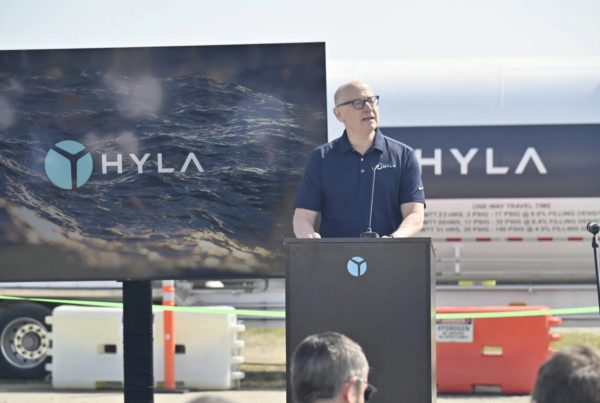
- A new MLI paper outlines how Canada can become a key exporter of CO2-reduced energy sources, including hydrogen, for Germany and Europe.
OTTAWA, ON: Following Russia’s invasion of Ukraine, European countries were forced to contend with their dependence on Russian energy. However, the recent signing of a Joint Declaration of Intent by Germany and Canada to establish a Hydrogen Alliance could potentially help Europe wean itself from its energy dependence on Russia.
What opportunities and challenges might such a partnership face? In this new paper, titled Canada and the Energiewende: Understanding hydrogen as an opportunity for Canadian-German partnership, MLI Senior Fellow Heather Exner-Pirot, Philipp Runge, Bernd Weber, and Veronika Grimm outline Canada’s potential to become a key exporter of CO2-reduced energy sources, including hydrogen, for Germany and Europe. This paper is being jointly published by MLI and EPICO, in cooperation with Konrad-Adenauer-Stiftung.
“Germany has a vital interest in establishing new energy partnerships and deepening existing ones. The current gas crisis in Germany also requires an acceleration of the hydrogen ramp-up in conjunction with the need to substitute Russian natural gas supplies in the short-term,” write the authors.
By contrast, with advantages in hydroelectric generation, fossil fuels, carbon capture, renewables, fresh water, and more, Canada has all the key ingredients to be a major player and partner for Germany in hydrogen. “Canada has what few other countries have: an ability to produce more energy than it could ever consume, thanks to its small population and enormous land and resource base.”
This abundance makes for a strong match between Ottawa and Berlin, given that Germany will remain a net energy importer in the medium- and long-term. Moreover, due to expected lower production costs abroad, the import of hydrogen and its derivatives seems not only reasonable but also necessary from an economic perspective.
Optimism about hydrogen development transcends political and geographic lines in Canada. However, challenges remain. For instance, Europe lacks a clear legal framework for the use of certain kinds of hydrogen, such as blue hydrogen which is derived from natural gas. Instruments intended to flank the import of hydrogen and its derivatives, such as the German funding instrument H2Global, have so far been designed exclusively for green products.
As a result, private-sector investments in blue hydrogen and other “non-green” hydrogen products risk becoming stranded assets. This poses a unique challenge for Canada, a country with vast natural gas reserves but is in the nascent stages of developing hydrogen production capacity.
As a next step, the concrete implementation of the German-Canadian hydrogen partnership must be prioritized. The authors argue that this partnership should be part of a larger hydrogen import strategy that includes policies to ramp-up market demand for hydrogen and its derivatives in Germany and throughout Europe in the short- and medium-term.
“The two countries share common values such as a clear commitment to universal human rights, democratic principles, a rule-based world order, free trade, resolute climate protection and effective multilateralism,” conclude the authors. “Hence, Canada has the potential to become a key exporter of CO2-reduced energy sources, including hydrogen, for Germany and Europe.”
Read the most up to date Fuel Cell and Hydrogen Industry news at FuelCellsWorks




